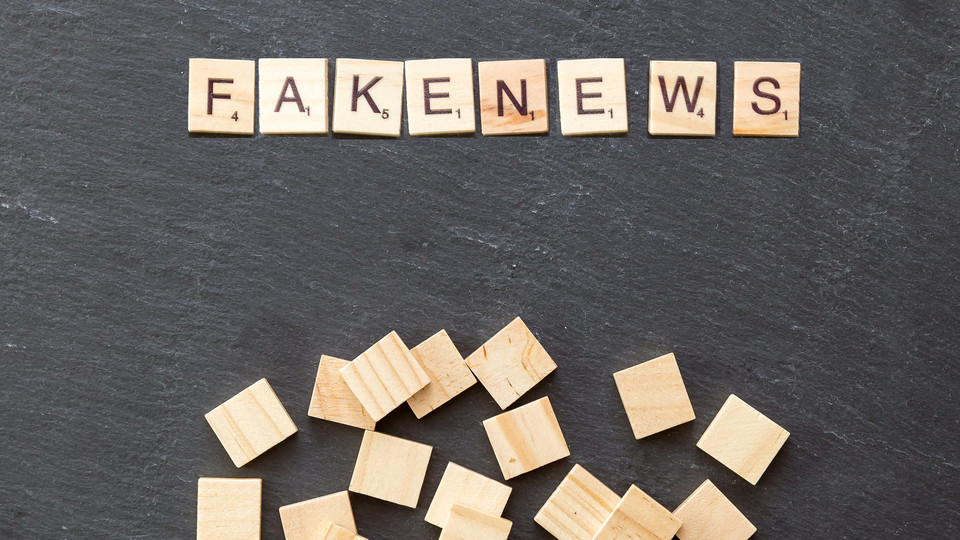News
Curbing Fake News Pandemic: Nigeria should Embrace Effective Media Monitoring

Obviously, opinions are still sharply divided about what recent suspension of Twitter and other actions of the government portend for Nigerian media industry and the country at large. However, before the federal government’s controversial decisions, the industry and the nation were clearly facing a bleak future especially with persistent and mindless distribution of fabricated news reports. “Nigeria…is grappling with the fake-news epidemic spreading across the country.
The problem has become so acute that the government of Africa’s most populous nation has warned that misinformation could be the greatest threat to credible elections,” The Wall Street Journal recently notes. President Muhammadu Buhari and his deputy, Yemi Osinbajo equally share the concern. “…with the growing increase in fake news, the future of your profession is under threat and therefore you must be ready to correct this and safeguard your profession…,” Buhari reportedly warns media owners and practitioners. Osinbajo, at a recent event in Lagos, adds, “almost daily, fake news or mischievously manipulated news is trafficked with the clear intent of warping the perception of reality and inducing conflict.”
The heat from false news stories is also spreading faster and evidently stifling opportunities and growth in other sectors. “…84% of businesses feel threatened by fake news about their products. It’s particularly worrying for…businesses where the practice of targeted misinformation designed to harm a company’s reputation has been more acutely weaponised…,” a report cited in www.cnbcafrica.com, projects. Another report cited in www.goethe.de, claims, “the prevalence of fake news has made the fighting of diseases more complicated for Nigeria’s government and its healthcare sector.”
Interestingly, there is nothing suggesting that the promoters of fake news are backing down soon. So, what should a serious-minded government do? Turn a blind eye to the increasing threats? Initiate measures aimed at stemming the tide? The federal government settled for the latter. Lai Mohammed, Nigeria’s Information Minister recently launched a campaign against fake news. The minister, during that launch, reportedly, stresses, “there is an epidemic sweeping the world. If left unchecked, it could be worse than all the plagues that world has recorded put together. It is a clear and present danger to global peace and security. It is a threat to democracy. It is the epidemic of fake news. Mixed with hate speech, it is a disaster waiting to happen.” For Tolu Ogunlesi, a media assistant to President Buhari, “… naming and shaming of members that peddle fake news” could stem the problem.
Some government-funded agencies like the Nigerian Broadcasting Commission, NBC and the Advertising Practitioners Council of Nigeria, APCON, are equally not leaving any stone unturned in checking the cited abuses. NBC, saddled with the regulation of the broadcasting sector, recently sanctioned some outfits for breaches. Bob Aroture, a media expert, notes, in Nigerian Law Intellectual Property Watch, the contraventions “include breaches of the rules on hateful speech, vulgar lyrics and unverifiable claims…” Available reports also indicate that APCON, vested with powers of regulating and controlling the practice of advertising in Nigeria, in all its aspects and ramifications, always “insisted on pre-exposure clearance of all advertisements in order to check all forms of abuses such as misleading statements, spurious testimonials, visual and verbal exaggerations, misleading offers, suggestion or pictures offensive to public decency.”
It, however, cannot be over-stressed that the country is still in dire need of better approaches in spotting and preventing potential fake news. The best solution, some concerned stakeholders suggest, is timely and efficient capturing of all media exposures. “Typically, individuals or organisational clients-e.g. private companies and corporations, charities, government departments and ministries…subscribe to a media monitoring service to keep track of what is being said about them, their field of operations, their competitors, or other related specified topics of interest,” notes Wikipedia. Another report, cited in nigeriang.com, reads “media monitoring tracks competitive analysis and provides intelligence information about the operations of competitors.”
Media monitoring, widely credited to Romeike, a Polish newsagent who set up the first clipping agency at London in 1852, is expanding rapidly. “Spend growth of this industry has the potential to touch a value of over USD 2 billion with spend momentum that will accelerate at a CAGR of more than 10% between 2019-2024,” projects a report in procurement.spendedge.com. “Media monitoring software market, another report, in manometcurrent.com, posits, is expected to reach USD 7.04 billion by 2027 witnessing market growth at a rate of 13.80% in the forecast period of 2020 to 2027.”
In Nigeria, media monitoring was not seen as a priority by most businesses until recently. “Pre-1995, media compliance in the market was said to be around 50%, causing marketers enormous headaches,” a recent report cited in www.brandcrunch.com.ng, affirms. The situation however changed with the launch of Media Monitoring Service Ltd, an independent media monitoring, research and analysis agency. The latter reportedly recognised as the industry leader, officially started operations in Nigeria, in 1995 and has since been partnering with government, businesses and individuals in ensuring that nothing is left to chance. “The information supplied by the firm has made media planning more scientific. The information they supplied has given us a level of confidence as we are conscious that somebody somewhere is monitoring and checking to ensure that our investments in the media are justified,” Ify Kagho, a renowned branding professional, recently attests, in guardian.ng.
Source: Sunday Odiaka











